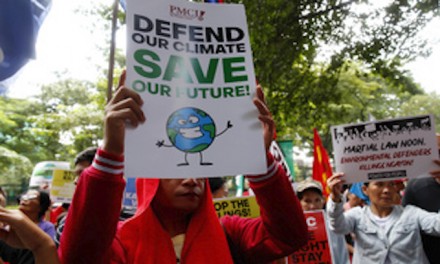In a desperate answer to a dire problem, San Francisco is setting up sanctioned homeless encampments throughout the city — becoming the first in the region to embrace a dramatic policy shift that would have seemed far-fetched just a few months ago.
After watching the number of tents within its borders increase by 71% during the coronavirus pandemic, San Francisco opened its first temporary, city-organized encampment this month — a fenced-off piece of asphalt with dozens of tents right outside City Hall. Two others are set to open within days, with more likely to come.
It’s a controversial strategy that’s sparked pushback from neighbors worried about safety, and from activists who argue the camps are neither humane nor sufficient for the scope of the problem. But proponents, including Mayor London Breed, say they’re the best option available. And while other major Bay Area cities mostly have avoided adopting city-organized encampments for years — despite their expanding homeless populations — some outreach workers say it’s time to embrace the inevitable.
“There’s been a longstanding reluctance to do this, because in some ways it’s an admission of our societal failures. It’s an admission of how shameful it is that we haven’t figured out how to get people housed,” said Dr. Margot Kushel, director of the UCSF Center for Vulnerable Populations at Zuckerberg San Francisco General Hospital. “But on the other hand, that is where we are.”
Inside San Francisco’s “safe sleeping sites,” where tents sit inside squares marked on the asphalt eight feet apart to promote social distancing, there are hand-washing stations, portable toilets, showers, meals and security guards. Proponents say they’re a step up from the crowded, unhygienic encampments that spread across the city’s streets and sidewalks after shelters — worried about overcrowding during a pandemic — stopped taking people in.
Advocates in other cities agree. Dealing with its own surge in homelessness, Santa Rosa also opened a sanctioned tent encampment this month. Seattle and Olympia, Washington, have them too.
Oakland and San Jose have taken a different approach, mostly focusing on funneling homeless residents out of encampments.
“For the time being, our focus remains on partnering with the County to bring people indoors (into hotels and our trailers) rather than keep them outdoors at a campsite,” Karen Boyd, spokeswoman for the city of Oakland, wrote in an email.
For those Oakland can’t house, officials have installed portable toilets and hand-washing stations at their camps.
San Francisco is opening its sanctioned camps following weeks of infighting between the board of supervisors and the mayor. Supervisors have demanded Breed convert 8,000 empty hotel rooms into homeless housing, while the mayor insists that’s not feasible. So far, the city had secured 3,178 hotel rooms and RVs for homeless residents, front-line pandemic workers and other at-risk groups. Of those, 1,387 were occupied.
Meanwhile, more than 100 people at the city’s largest shelter, MSC-South, contracted COVID-19 last month.
San Francisco’s sanctioned City Hall encampment can hold up to 70 tents. Another with 40 tents is slated to open on a vacant lot in the Haight-Ashbury neighborhood Friday. And a third with 60 tents is set to open the second week of June between the city’s Castro and Mission districts. The city’s parks department and real estate office have been tasked with finding other suitable sites.
Services at the City Hall camp are sparse — there’s no job training, counseling or caseworkers helping residents look for permanent housing. But 32-year-old Sarah Snider, who shares a tent there with her boyfriend, said it’s “pretty chill.”
“Everybody can pretty much do whatever they want, as long as they’re respectful,” she said.
Homeless outreach workers agree the key to a successful sanctioned encampment is to involve residents in setting up and managing the camp — something those involved say didn’t happen at the City Hall camp. But it’s easier said than done.
Residents of an encampment on High Street in East Oakland started working with activists and city officials last year to form a sanctioned camp that would be co-governed by residents and the city. But negotiations broke off in January after the two groups couldn’t agree on how to share control, said activist Needa Bee.
Boyd said past negotiations to create co-governed camps have fallen apart because the organizations involved didn’t have the capacity to help run the sites. However, city officials haven’t given up on that option, she said. In the meantime, though Oakland has no plans to set up the kind of city-organized encampments now seen in San Francisco, Oakland officials are considering designating certain areas where people can camp as they wish.
San Jose has no sanctioned homeless camps, but the city once had a lease with Hope Village that allowed residents to camp on city-owned land south of Mineta San Jose International Airport. That ended last year, and officials couldn’t find a place to move the camp, so it was disbanded.
San Francisco’s sanctioned camps also will be temporary. The one planned for a vacant lot at Haight and Stanyan streets — where a crime-plagued McDonald’s once stood — will last no longer than six months. But that hasn’t assuaged the worries of some nearby residents.
“We believe the community faces a simple choice — should the area surrounding the entrance to Golden Gate Park be a safe and healthy space for everyone, or should it go back to what it was in the past with the problematic McDonald’s?” a representative of Safe Healthy Haight, a group formed to oppose the camp, wrote in an email.
Others have embraced the idea. On a recent afternoon, 32-year-old Devon Davey and several friends who live nearby were drawing chalk messages on the sidewalk in front of the lot. “Cole Valley + The Haight welcomes our new neighbors,” they wrote, next to a drawing of a rainbow.
“Community is about belonging and neighborliness,” Davey said. “And everyone deserves that.”
___
(c)2020 the San Jose Mercury News (San Jose, Calif.)
Visit the San Jose Mercury News (San Jose, Calif.) at www.mercurynews.com
Distributed by Tribune Content Agency, LLC.
—-
This content is published through a licensing agreement with Acquire Media using its NewsEdge technology.



















Recent Comments